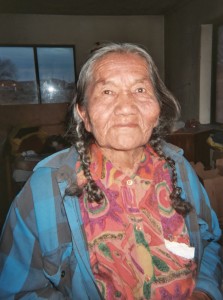National Older Americans Month
President Obama issued a proclamation last week declaring May to be National Older American Month. The 2011 theme for this year’s celebration is “Older Americans: Connecting the Community” to acknowledge the important role older adults have in enhancing the quality and depth of community life for all people. At NRC this month we are celebrating the central role American Indian elders have in the continuation of culture and community.
 In American Indian communities the term “elder” refers to a position of leadership rather than a particular age. A person who has lived long enough to gain experiences, wisdom, spiritual understanding, and the respect of their own community may be an elder regardless of their chronological age. Conversely, a person may grow quite aged yet not be considered an elder.
In American Indian communities the term “elder” refers to a position of leadership rather than a particular age. A person who has lived long enough to gain experiences, wisdom, spiritual understanding, and the respect of their own community may be an elder regardless of their chronological age. Conversely, a person may grow quite aged yet not be considered an elder.
 People become elders by paying attention and gaining knowledge and wisdom throughout their lifetime. When they were young, elders watched and listened patiently to traditions and stories. As they grew older they learned at ceremonies and observed how elders in their communities conducted themselves and interacted with others. It is through example that elders teach younger tribal members about culture and tradition. Through the oral traditions elders transmit cultural values and beliefs so they can be preserved by younger generations. Elders are the keepers and teachers of knowledge, history and tradition. This wisdom, and therefore the elders themselves, are a key source of strength in Native American communities.
People become elders by paying attention and gaining knowledge and wisdom throughout their lifetime. When they were young, elders watched and listened patiently to traditions and stories. As they grew older they learned at ceremonies and observed how elders in their communities conducted themselves and interacted with others. It is through example that elders teach younger tribal members about culture and tradition. Through the oral traditions elders transmit cultural values and beliefs so they can be preserved by younger generations. Elders are the keepers and teachers of knowledge, history and tradition. This wisdom, and therefore the elders themselves, are a key source of strength in Native American communities.
One Native youth on You Tube played the flute in tribute to elders because, he says, “they have wisdom, knowledge and understanding of all that surrounds us and they have walked upon this earth longer than any of us but also when they pass on a big piece of history is gone of how it was in the past.”
Elders also play a significant role in family and community life. Often tribal leaders go to the elders before making important decisions or conducting events and ceremonies. Elders are present and participate in public meetings, council meetings and other meetings where community challenges and potential solutions are discussed. While elders may not be particularly vocal at these meetings, their presence is important. Elders bridge the past and present, so their interactions with young people and teachings of tradition are very important. Kinship responsibilities often increase for elders as they grow older. In addition to these traditional responsibilities, elders often contribute to their communities by directing tribal programs, teaching at all levels, raising grandchildren, and advising and advocating for their people. This narrative published by Horizon gives a good description of the importance of Elders in Native communities.
During the month of May, please take time out to acknowledge the contributions that older Americans make in your community. Stop, listen, and learn from their life experiences.


2 Comments
I am sure this article has touched all the internet readers.
What’s up, just wanted to say, I loved this article. It was inspiring.
Keep on posting!